Fifteen Brewers rookies who made their MLB debut on opening day
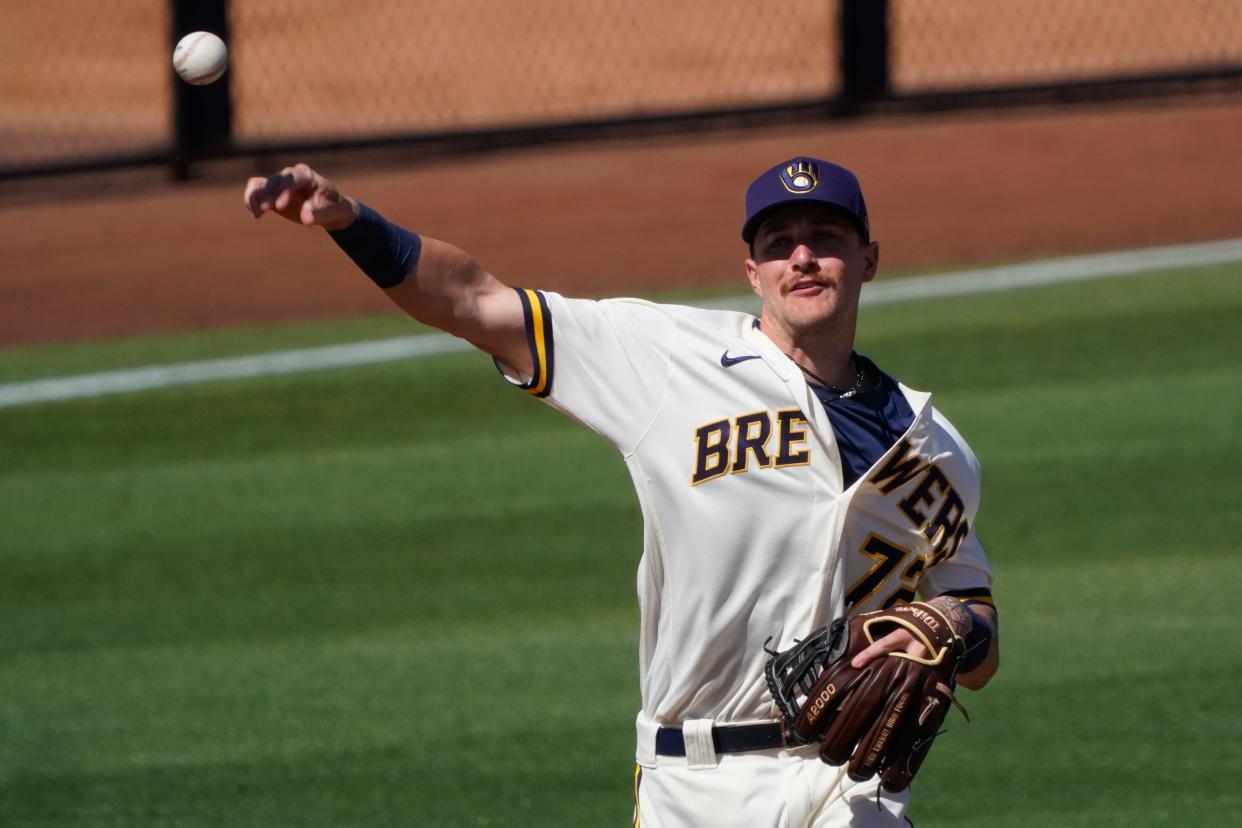
- Oops!Something went wrong.Please try again later.
- Oops!Something went wrong.Please try again later.
- Oops!Something went wrong.Please try again later.
- Oops!Something went wrong.Please try again later.
Brice Turang is in the lineup on opening day, and there's still a chance reliever Gus Varland will join him at some point Thursday making his Major League Debut.
Before Turang, only 15 Brewers — and just two pitchers — have made their Major League debut on Opening Day (the true opener of the season, not necessarily the home opener). That includes two of the biggest names in franchise history and plenty of names that may not be on your radar.
These are rookies who started their career under the spotlight of the season opener.
More: These are the 11 best rookie seasons in Milwaukee Brewers history
2020: J.P. Feyereisen
It counts as the strangest opening day ever, kicking off in July to open a season full of empty stadiums, with the season sliced down to 60 games by a global pandemic. Feyereisen, a native of River Falls, is the only Wisconsinite on this list, and he allowed a two-out homer to Anthony Rizzo of the Cubs in the eighth (one batter after striking out Kris Bryant, no less). Feyereisen was traded to Tampa Bay in 2021 in the Willy Adames trade and had a fascinating 2022, when he worked 24 1/3 innings without allowing a run but also missed most of the year with injury. He was traded to the Dodgers in December and will be working back from major shoulder surgery, starting the year on the 60-day injured list.
2016: Colin Walsh
Before Varland, Colin Walsh was the last Rule 5 pick to appear in an opening-day game for the Brewers. Selected from Oakland, the savvy infielder Walsh had a knack for getting on base, but Walsh only had four hits in 63 plate appearances to open the year (though also 15 walks … but 22 strikeouts). He was returned to Oakland in early June. Strangely enough, a player you may have forgotten also made the roster as a Rule 5 pick, Zack Jones, and he was with the organization longer than Walsh before getting offered back to the Twins. But Jones started the season on the injured list and never appeared in the big leagues.
2013: Khris Davis
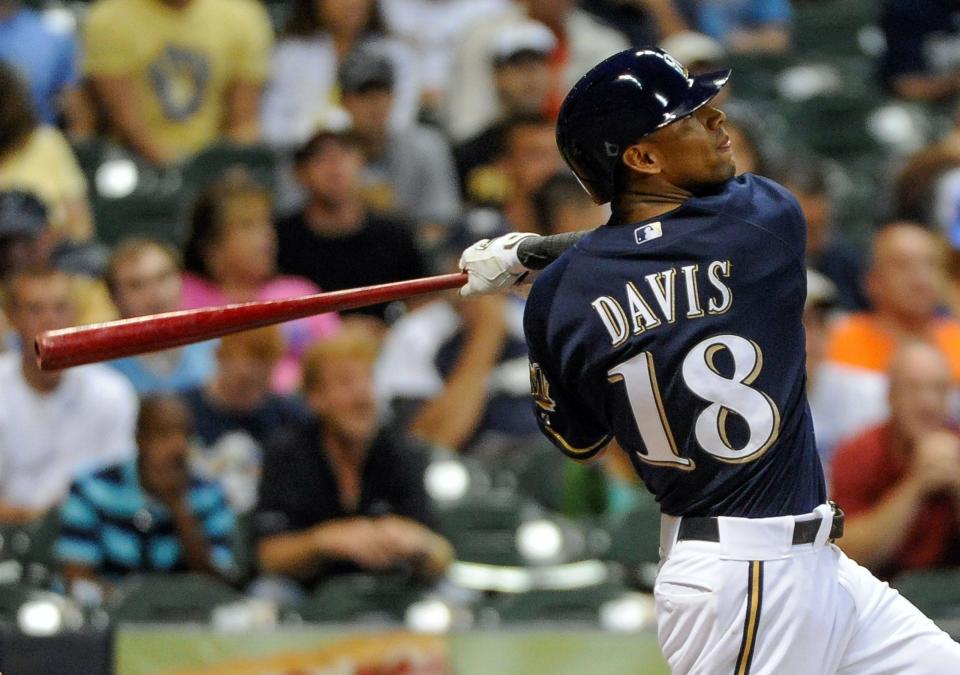
Davis grounded out in the bottom of the ninth as a pinch hitter against the Rockies, ending the frame in a game the Brewers eventually won in the bottom of the 10th. He found himself shuttled back and forth to Class AAA that season after a strong spring training netted him a spot on the opening-day roster, but he finished the season with a .949 OPS and 11 homers in just 153 plate appearances. He played two more seasons in Milwaukee before getting traded to Oakland for catcher Jacob Nottingham and minor-league pitcher Bubba Derby, a trade that continues to rile up Brewers fans since Davis went on to deliver three 40-plus homer seasons for the A's. But Davis also famously had a weak outfield arm and was better suited for designated hitter, something that wasn't then a full-time option in the National League.
2012: Nori Aoki
Aoki struck out in a pinch hit appearance during an 11-5 loss to St. Louis, but he wound up having a highly productive season after the Brewers signed the 30-year-old Aoki to a two-year deal; he'd previously played for the Yakult Swallows in Japan. Aoki ultimately posted a .787 OPS in 151 games and 588 plate appearances, with 10 homers, 30 stolen bases, and a fifth-place finish in the Rookie of the Year voting. He played both years in Milwaukee and went to the World Series with Kansas City in 2014 after he was traded for reliever Will Smith.
2005: J.J. Hardy
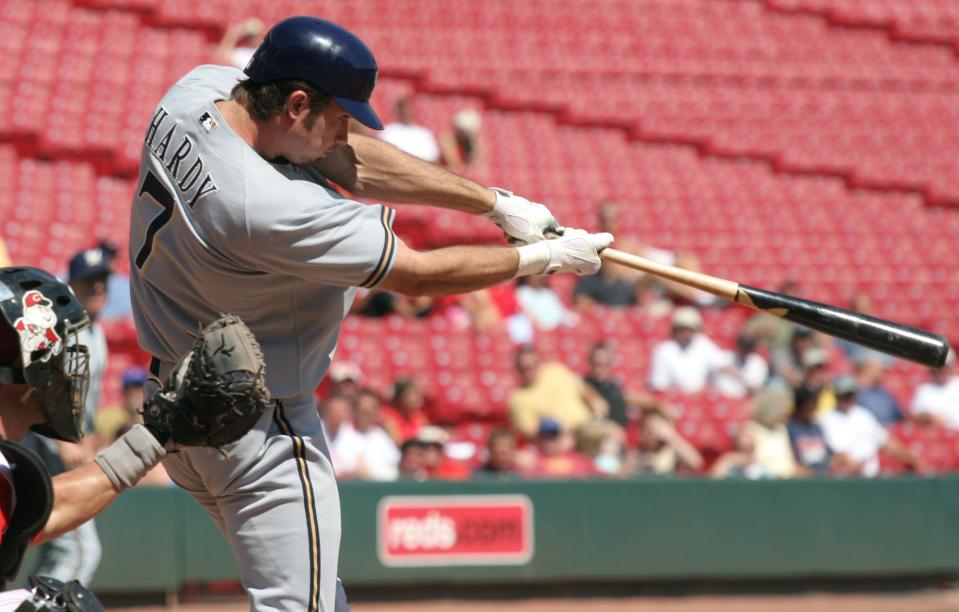
The last rookie to start on opening day was also the last bona fide top prospect to make his debut on opening day for the Brewers. At the forefront of an exciting prospect wave, Hardy won the starting shortstop job and delivered a two-run single in his first big-league game as part of a 9-2 win over Pittsburgh. Hardy didn't light the world on fire as a rookie but he was an all-star in 2007 and played five seasons in Milwaukee before getting traded to Minnesota for Carlos Gómez. Hardy played the final seven years of his career in Baltimore, with a 2013 all-star appearance. Today, he's in the Brewers' Walk of Fame.
1998: Greg Martinez
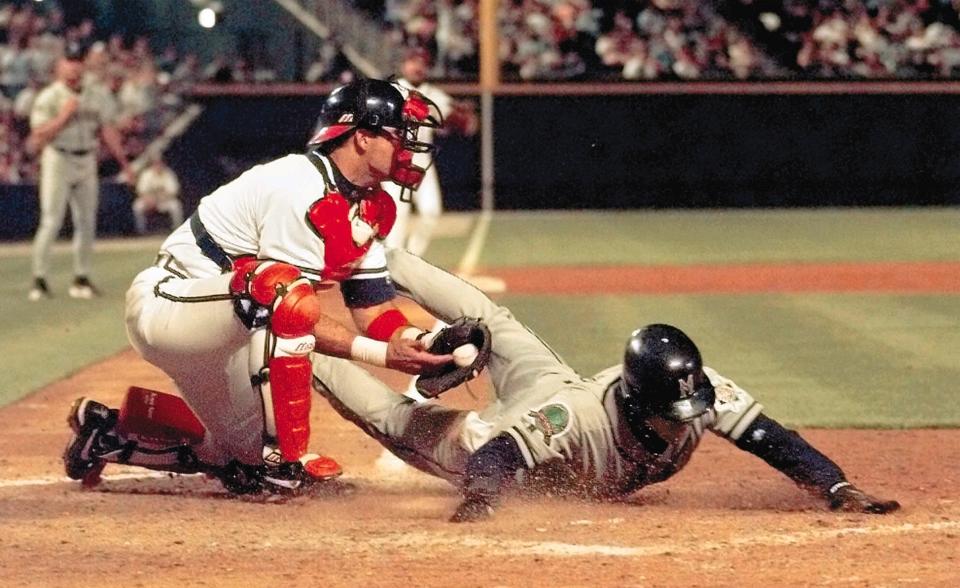
The speedy Martinez only made four big-league plate appearances and saw action in 13 games in his only big-league season. But on opening day, he appeared as a pinch runner in the ninth inning of a 1-1 game and stole second base (one of two career swipes). He was stranded on third, however, when Jeff Cirillo was picked off first, and the Brewers lost on a walk-off error in the bottom of the ninth by a 2-1 count. Martinez, who made the roster when outfielder Darrin Jackson was placed on the injured list the night before the opener, was 26 years old and went back to Class AAA when Jackson returned a week later, though Martinez made brief returns in July and September.
1993: Joe Kmak
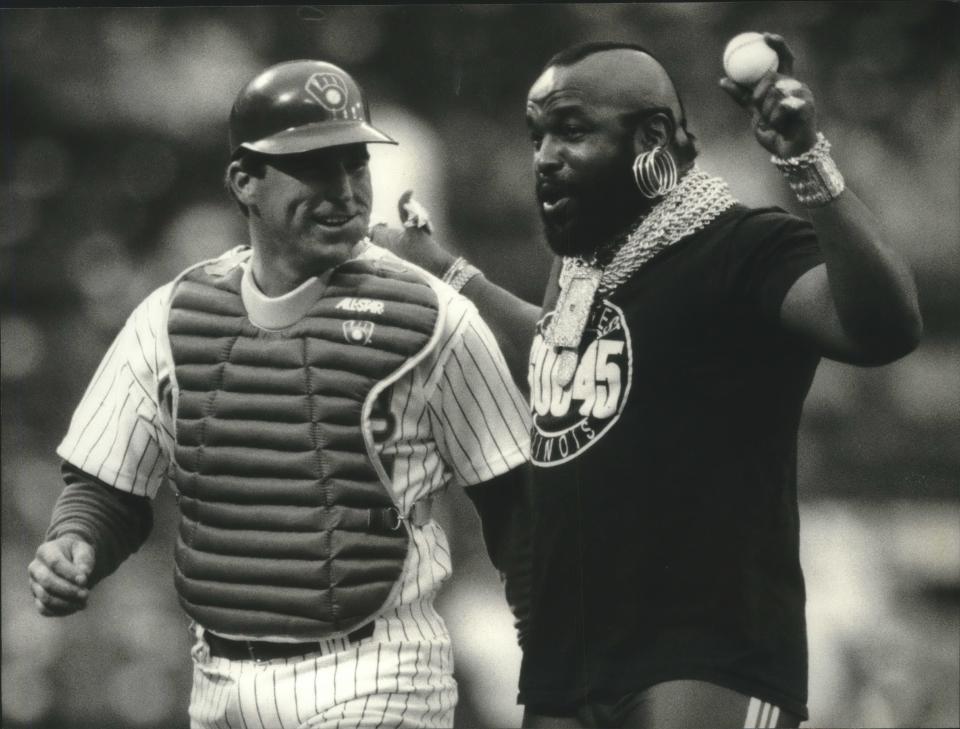
The 29-year-old catcher threw out two would-be basestealers, singled and stole a base of his own in the 1993 opener at California, but the Brewers only had two other hits total and took a 3-1 loss. Kmak wound up with 127 plate appearances that year and only played one other year in the big leagues, seeing action in 19 games for the Cubs in 1995, but he was still a great story. Kmak had spent four seasons at Class A in the Brewers organization (and eight overall in the minors), and he got a chance with Dave Nilsson out to start the year with a wrist injury.
1988: Joey Meyer
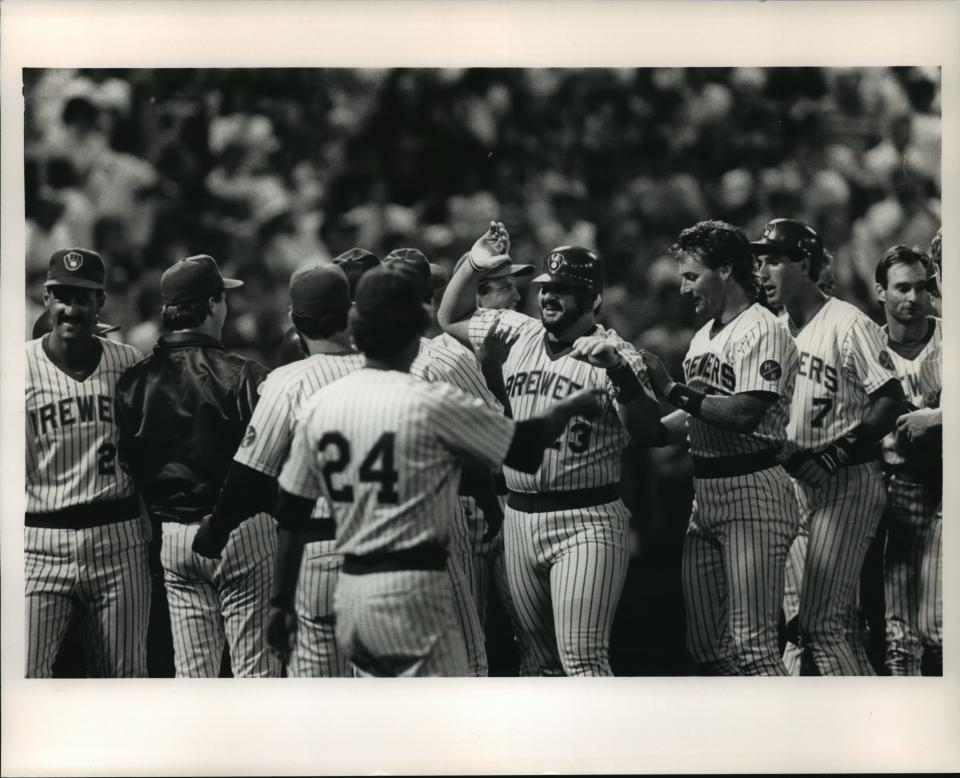
Blessed with power that made him the franchise's top prospect, Meyer won a job in spring but would have started at DH in a perfect world, though an injury to Paul Molitor put Molitor at that spot instead. Meyer only saw action at first base in a 12-0 win over the Orioles. Overall, he hit 11 home runs in 352 plate appearances that year and just seven in 1989 over 164 plate appearances. They were his only two years in the big leagues; he signed a contract in Japan for 1990.
1982: Kevin Bass
Bass served as a pinch hitter and played right field in a 15-4 win for the eventual American League champion; he would only see 18 games and 11 plate appearances for the Brewers and be traded late in the season to Houston in the deal that brought Don Sutton to Milwaukee. Bass won the final outfield job over Marshall Edwards, but it was Edwards who was there at the end of the year, making a famous catch in Game 5 of the ALCS against California.
1982: Doug Jones
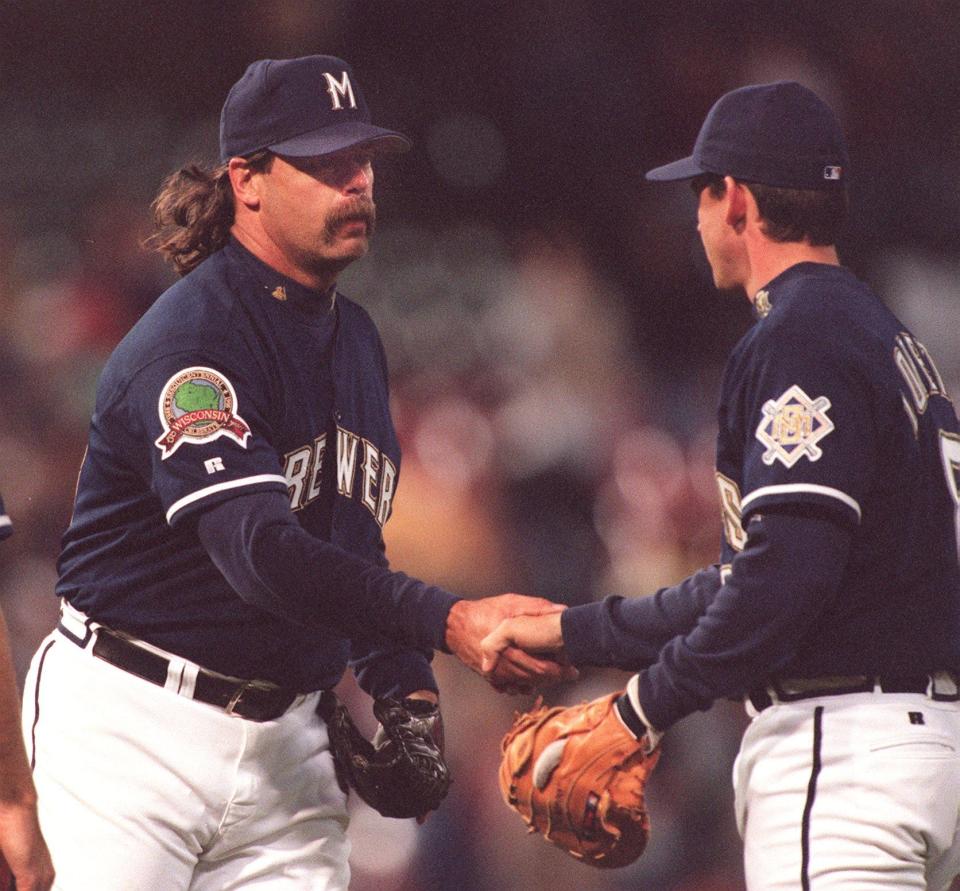
Jones worked a 1-2-3 ninth to record the final outs of a 15-4 win over Toronto. Pretty good for a guy who'd been told to report to Class AAA out of camp and had already checked out of the hotel when general manager Harry Dalton called and told Jones he'd been added to the big-league roster when Jim Slaton went on the injured list with back spasms. Jones appeared in four games … then would wait another four years to see the big leagues again when he appeared at age 29 with Cleveland in 1986. He wound up spending another 14-plus years in MLB thanks to a newly discovered changeup, making five all-star teams and even re-joining the Brewers in 1996. He set Cleveland's single-season save total with 43 in 1990 and racked up 49 saves with the Brewers over three seasons in his second go-round.
1981: Marshall Edwards
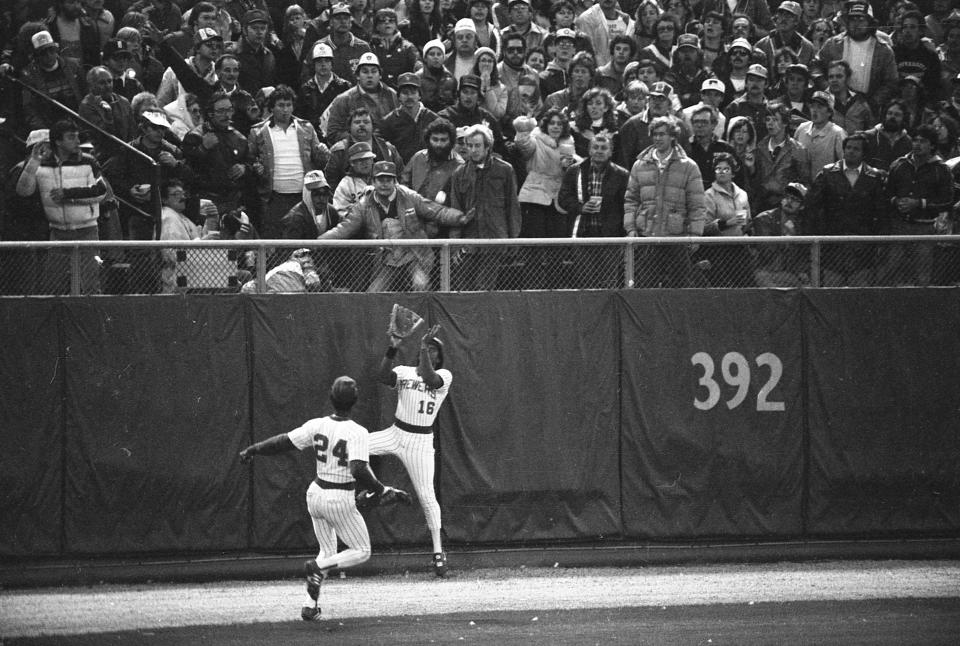
He served as a pinch runner and played right field in a 5-3 win over Cleveland, making his debut as a 28-year-old outfielder with a penchant for good defense. He ultimately made 58 plate appearances in 1981, 189 in 1982 and 79 in 1983 before his career was over, but he did make that catch in the 1982 postseason.
1978: Paul Molitor
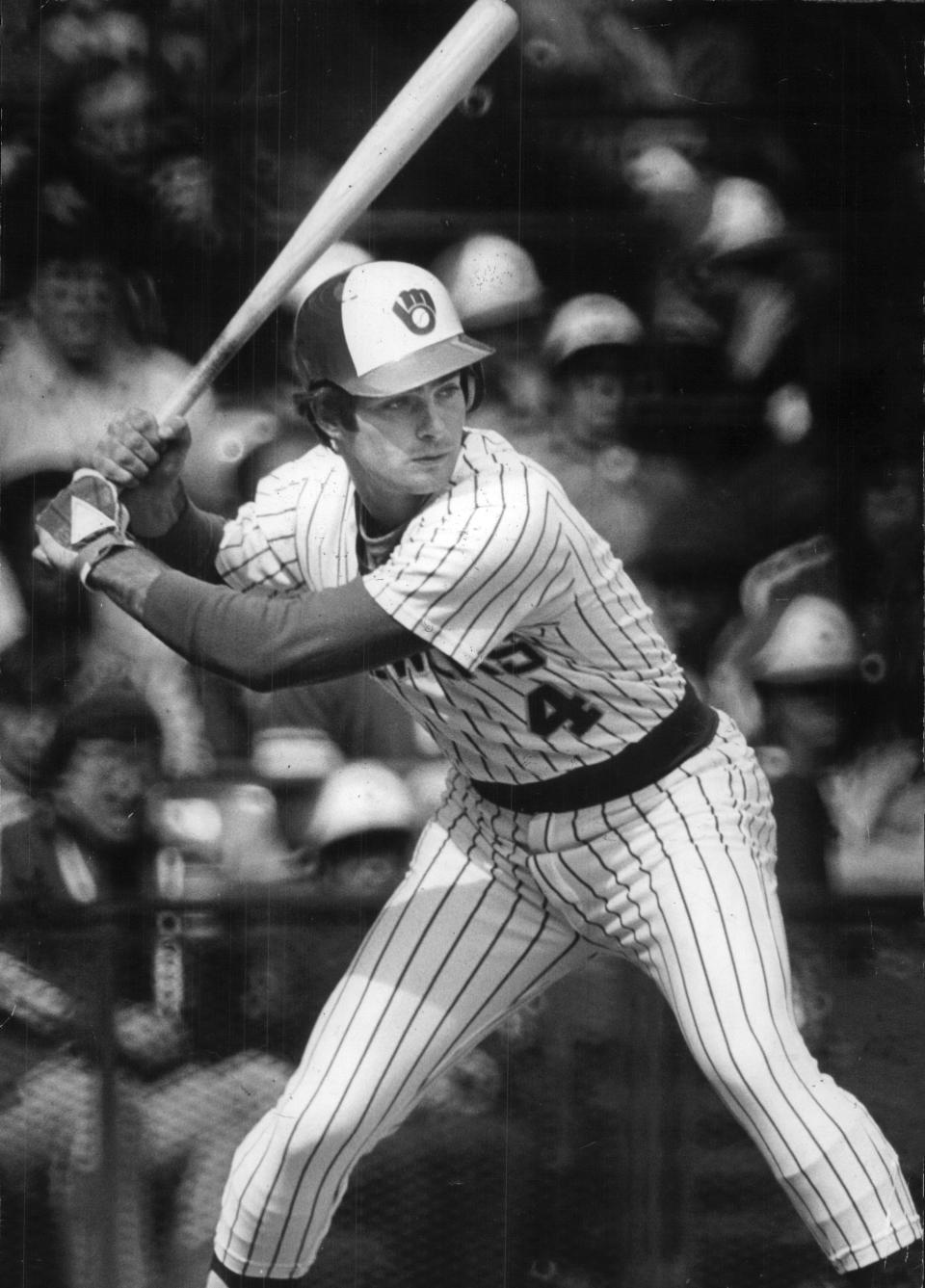
Molitor had a single and RBI in five at-bats during Milwaukee's 11-3 win over the Orioles. It was a weird start to the season for Robin Yount, who started the year on the disabled list and had left the team at one point under mysterious circumstances, prompting the club to turn to the 21-year-old Molitor at shortstop. Yount later revealed he'd suffered a foot injury in a motorcycle mishap but, embarrassed, kept the nature of the health ailment quiet. "By the time I came back, he was too hot to send down," Yount recalled. "So, they moved him over to second base. The rest, as they say, is history."
1974: Robin Yount

Yount, of course, had his own memorable opening-day as an 18-year-old shortstop. Brewers manager Del Crandall, once himself a teenager playing Major League Baseball and a former member of the Milwaukee Braves, couldn't come up with a reason why an 18-year-old couldn't start with the Major League club, and thus began a Hall of Fame career that spanned 20 years in Milwaukee. Yount walked in his first at-bat in a 9-8 loss to Boston and then flew out in his second before he was replaced for a pinch hitter.
1973: Gorman Thomas
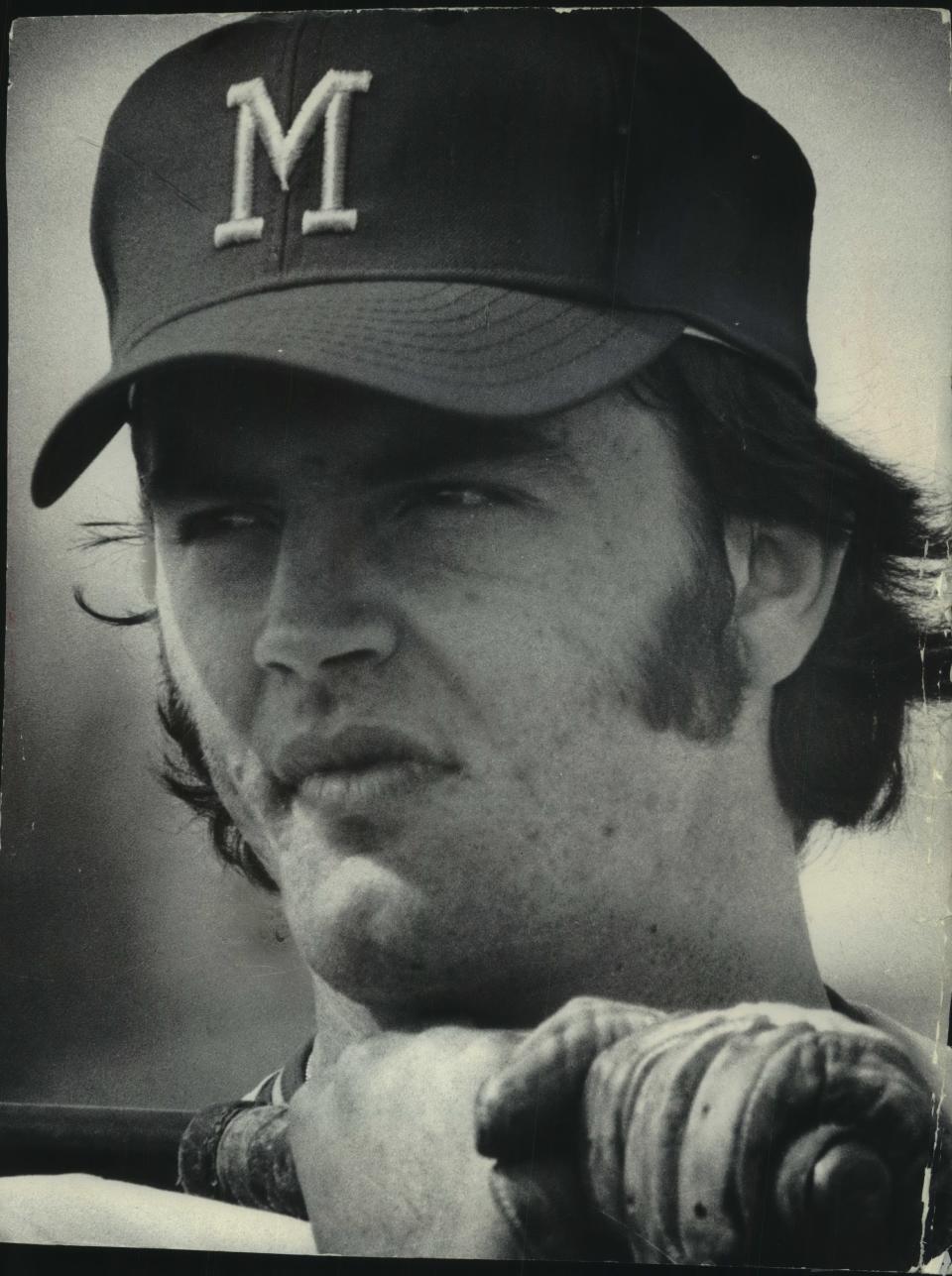
In a 10-0 loss to Baltimore, Thomas was the starting right fielder and tripled for his first major-league hit, though he also dropped the first ball hit to him for an error. It was a big one, too; it would have made for a 1-2-3 first inning, and instead the Orioles rallied for four runs in the first. Thomas had already developed a reputation as a brash personality; George Scott didn't cite him by name but expressed dissatisfaction with the rookies' attitude in camp just before the season began. But Thomas made the jump from Class AA ball
1973: Pedro García
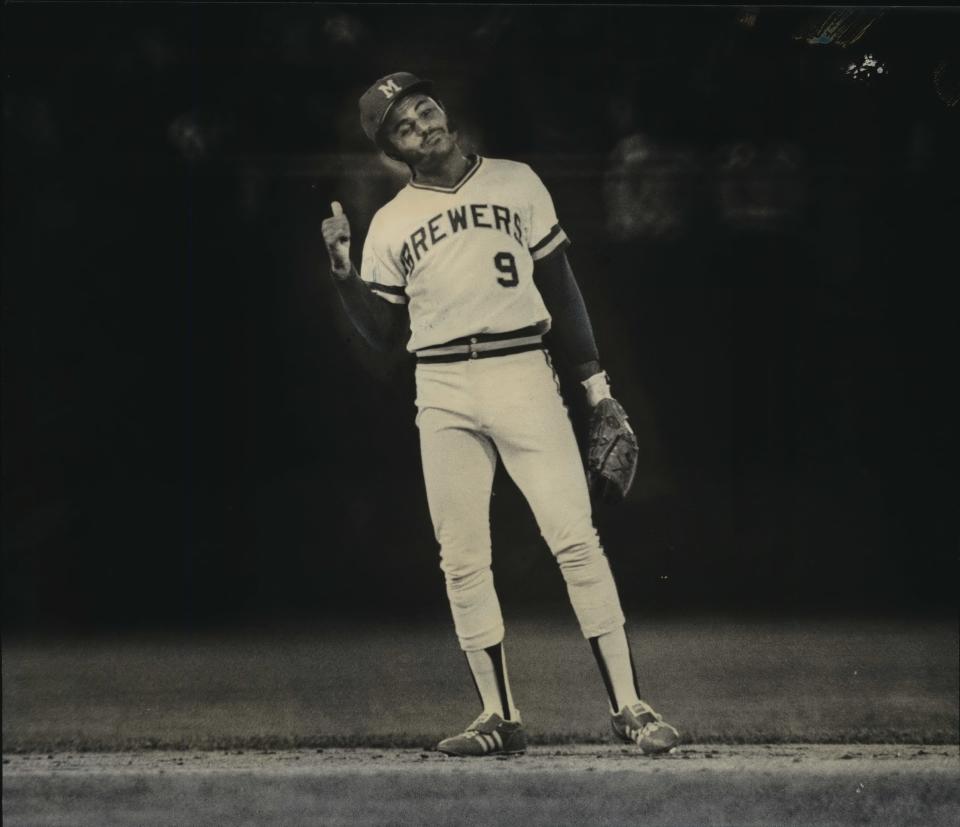
The starting second baseman on opening day went 0 for 3 in his first game, but while Thomas wound up having the more memorable Brewers career, it's García who took second in the Rookie of the Year voting that year in the American League (and Brewers catcher Darrell Porter also received votes). His numbers weren't flashy (.691 OPS, 15 home runs), and he took a distant second to Baltimore's Al Bumbry, but García tied for the league lead with 32 doubles (with future Brewer Sal Bando) and went on to play another two-plus seasons in Milwaukee as a regular second baseman (though his numbers deteriorated after 1973).
What about…?
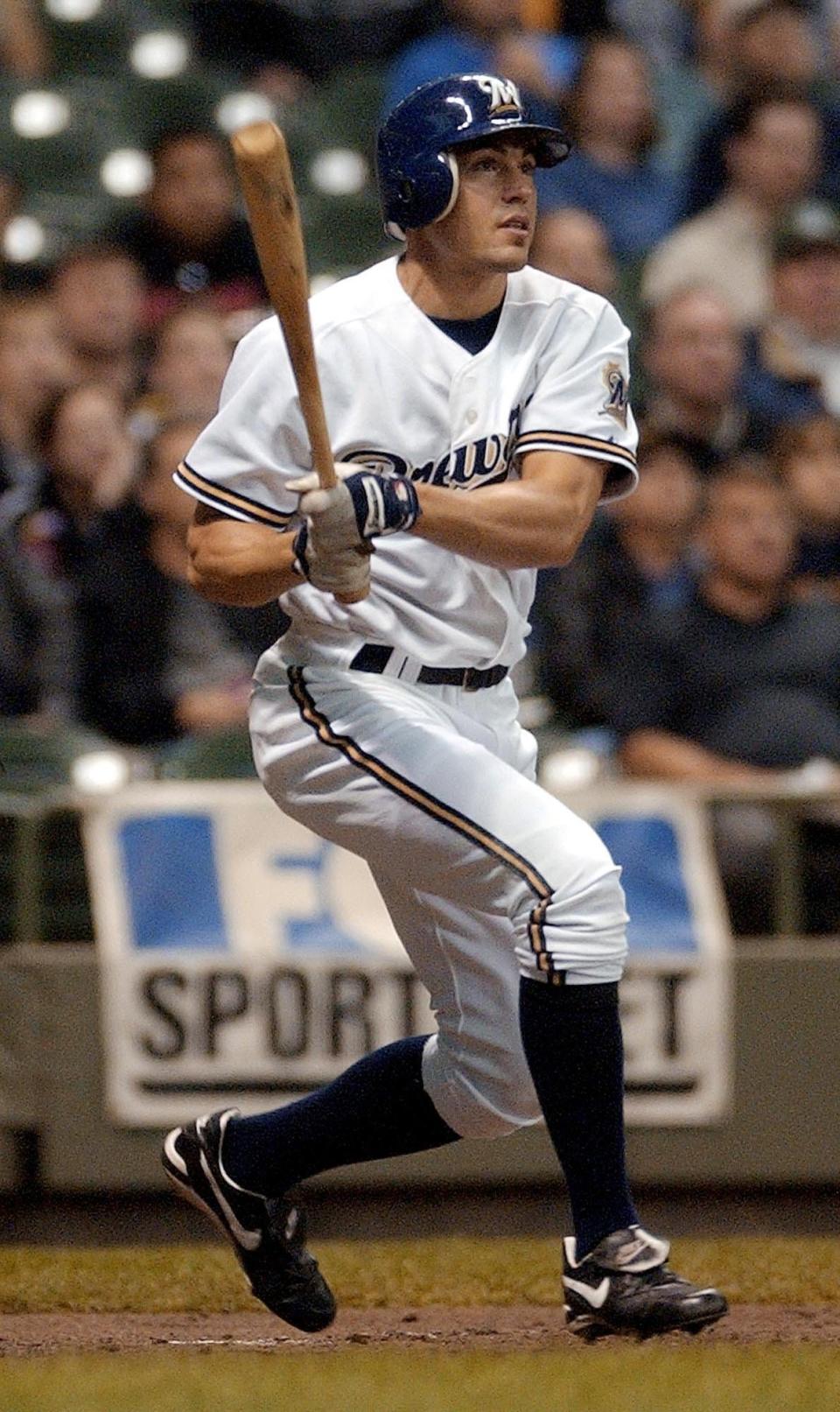
Darrell Porter, the aforementioned rookie on that 1973 team, didn't play in the opener that year and also had made appearances in 1971 and 1972.
Dan Plesac, who had a strong rookie season in 1986 before becoming a three-time all-star, didn't appear in a game until the fourth contest of the season.
BJ Surhoff, the only No. 1 overall draft pick in franchise history, was on the roster in 1987 but served as the catcher for the second game of the season. It was veteran Bill Schroeder, now of course the long-tenured Brewers television commentator, who caught the opener.
Pat Listach, the 1992 American League Rookie of the Year, played in the second game of the season but did not appear in the opener, where Scott Fletcher played shortstop instead. By late April, Listach was the regular starter.
Ben Sheets, a rookie in 2001 who made the all-star team that year, probably unsurprisingly was not lined up for opening day; that honor went to Jamey Wright. Sheets pitched in the fourth game of the season, an 8-2 loss that dropped the Brewers to 0-4 on the year.
Scott Podsednik, who garnered serious Rookie of the Year consideration in 2003, started the opener that season but had previously appeared in 19 games with Seattle in 2001 and 2002.
Ryan Braun, as many fans still remember, didn't open the season with the Brewers in 2007 but joined the team in late May in San Diego. He did not return to the minors. By season's end, he was Rookie of the Year.
Devin Williams, the 2020 Rookie of the Year, first appeared on Aug. 7, 2019. For a while, his claim to fame was surrendering a mammoth home run in his hometown of St. Louis to Paul DeJong on Aug. 19 that broke the Big Mac sign in left field. It is no longer the thing people think about with Williams.
This article originally appeared on Milwaukee Journal Sentinel: Like Turang (maybe), these 15 Brewers made their debuts on Opening Day

